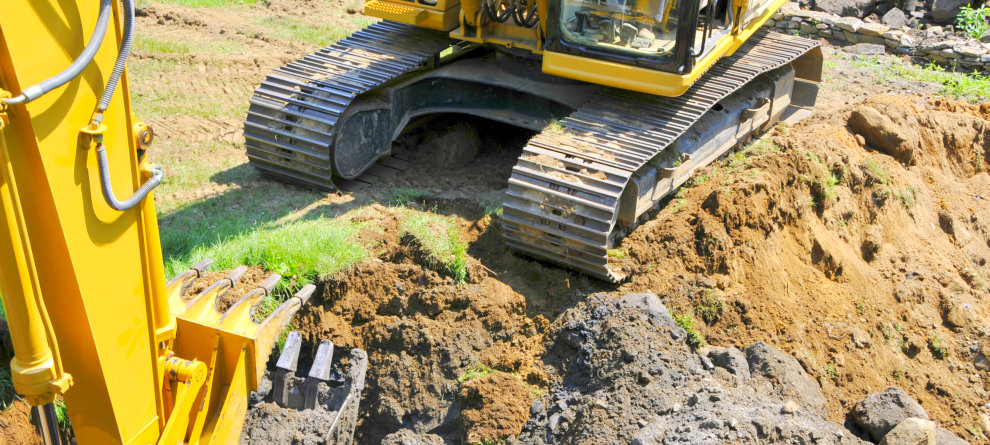Lancaster Excavation - Specialist Excavation Services in Lancaster, OH
Lancaster Excavation - Specialist Excavation Services in Lancaster, OH
Blog Article
Comprehensive Excavation Methods: Grasping the Basics for Success
In the realm of building and civil design, the relevance of reliable excavation techniques can not be overemphasized. The careful preparation, precise execution, and precise interest to detail needed in excavation jobs require an extensive approach that encompasses various fundamental facets. From initial dirt analysis to the execution of safety and security steps and regular progress surveillance, mastering these core aspects is crucial for attaining success in any type of excavation undertaking. However, the true mastery exists not simply in comprehending these principles however in flawlessly integrating them to browse the complexities of excavation jobs with skill.
Recognizing Excavation Task Preparation

The first stage of any kind of excavation task is the preparation phase, where essential choices are made that can dramatically influence the end result of the project. Recognizing the task timeline, spending plan, and range restraints is vital for developing an extensive excavation strategy that makes sure the project's success.
One trick facet of excavation task planning is the advancement of a thorough timeline that outlines the sequence of due dates, landmarks, and activities. By thoroughly taking into consideration all these aspects during the preparation stage, excavation tasks can be carried out successfully and effectively, leading to successful end results - excavating ohio.
Soil Evaluation and Site Assessment
Conducting thorough soil analysis and site analysis is a critical action in the preparation stage of any type of excavation project. Dirt analysis entails identifying the make-up, structure, and residential or commercial properties of the dirt at the excavation website. This details is vital for recognizing the dirt's bearing capacity, wetness material, and potential for erosion, which are vital elements in identifying the excavation techniques and tools needed for the task.
Site evaluation surpasses soil evaluation and encompasses a more comprehensive evaluation of the total site conditions. This evaluation consists of recognizing any kind of prospective hazards, such as below ground energies, environmental concerns, or unstable surface, that could impact the excavation process. By completely examining the website, project supervisors can establish efficient excavation techniques that prioritize safety, efficiency, and environmental management.
Using advanced innovations like ground-penetrating radar, dirt sampling, and drone studies can improve the precision and efficiency of soil analysis and site assessment. Investing time and sources in these preliminary steps can inevitably conserve time and stop expensive hold-ups or difficulties throughout the excavation process.
Equipment Choice and Use
Efficient excavation projects rely heavily on calculated devices choice and usage to ensure optimum performance and efficiency. Choosing the best equipment for the job is important in making linked here best use of efficiency and see this minimizing downtime. Variables such as the kind of soil, deepness of excavation, and task scope play a substantial function in identifying the most appropriate equipment for the job at hand.

In addition to choosing the proper equipment, correct utilization is essential to job success. Operators needs to be educated to deal with the devices safely and successfully - lancaster trenching. Normal maintenance checks and prompt repairs aid protect against break downs and ensure constant efficiency throughout the job
Precaution and Rules Compliance
In the realm of excavation jobs, prioritizing safety actions and compliance with laws is critical to ensuring a secure and lawfully sound functional atmosphere. Safety and security steps incorporate a series of practices, including performing thorough website assessments, executing appropriate signage and obstacles, and offering ample safety and security training for all workers entailed in the excavation process. Adherence to laws, such as OSHA needs in the United States, makes sure that the excavation job meets the required standards to shield employees, onlookers, and the surrounding setting.

Surveillance Progression and Adjusting Strategies
How can project supervisors efficiently track the advancement of excavation projects and adapt their methods appropriately to optimize outcomes? Tracking development is important for ensuring that excavation jobs remain on track and meet due dates.

Verdict
In verdict, grasping the basics of extensive excavation techniques is necessary for the success of any type of job. By recognizing task preparation, evaluating dirt and website conditions, selecting ideal devices, abiding by security regulations, and checking progress, job supervisors can guarantee a reliable and smooth excavation process. Executing these approaches will cause effective end results and minimize potential risks or troubles during the excavation task.
The preliminary stage of any type of excavation project is the preparation stage, where crucial choices are made that can significantly impact the end result of the task. Comprehending the project timeline, range, and spending plan restrictions is crucial for producing a comprehensive excavation plan that makes certain the job's success.
How can predict supervisors properly track the innovation of excavation tasks and adapt their approaches accordingly to optimize results? By very closely monitoring progress and being eager to adjust strategies, task supervisors can boost the overall success of excavation tasks.
By comprehending task preparation, analyzing dirt and website conditions, picking ideal tools, complying with security guidelines, and keeping track of progression, task managers can make certain a effective and smooth excavation process.
Report this page